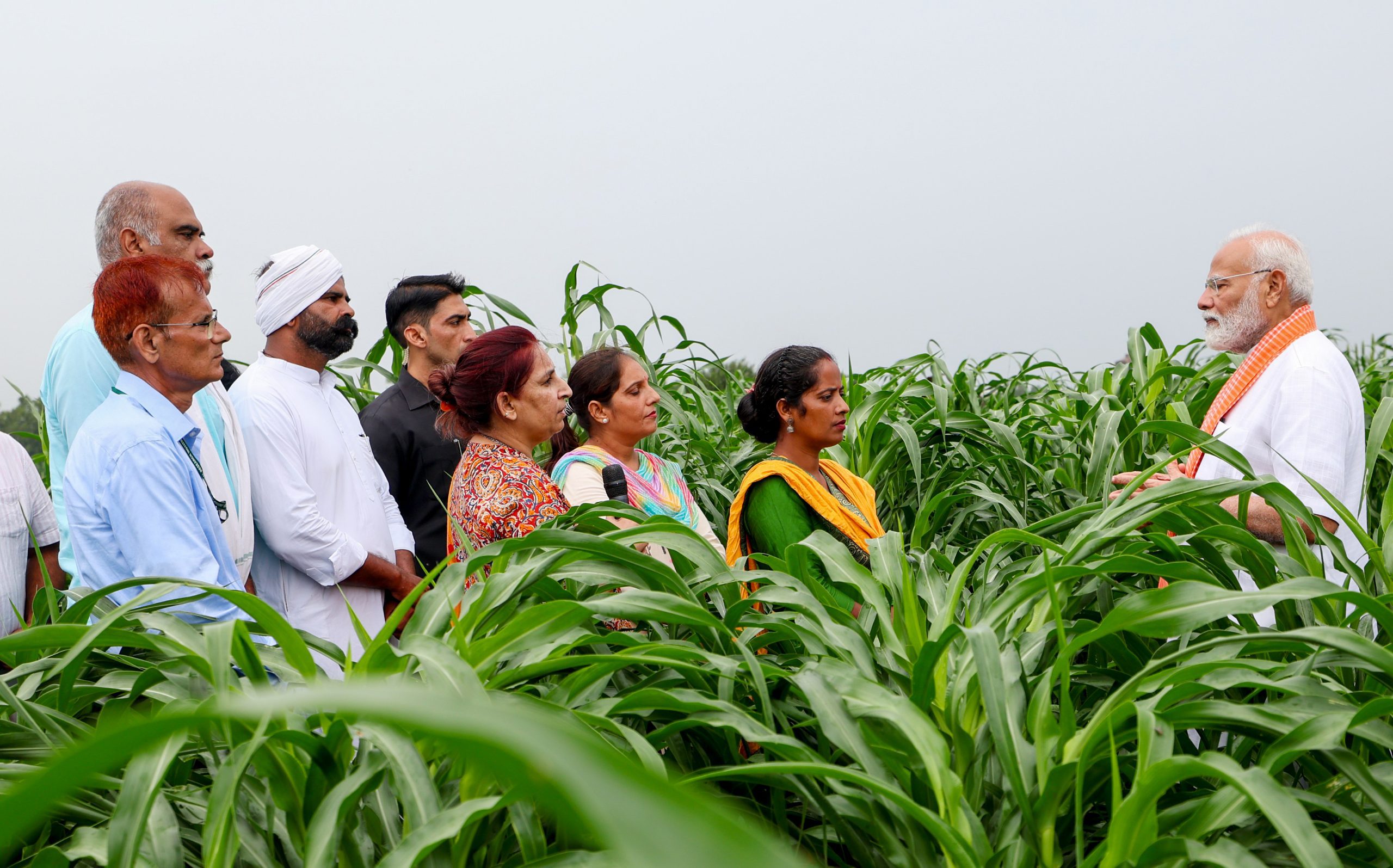Prime Minister Narendra Modi released 109 new varieties of field and horticultural crops on Sunday at PUSA, New Delhi, marking a significant step towards enhancing India’s agricultural output and farmer incomes.
The new varieties, developed by various agricultural research institutes across the country, include 69 field crops and 40 horticultural crops. These span a wide range of crops including cereals, pulses, oilseeds, fruits, vegetables, and medicinal plants.
Among the notable releases are:
– Nine new varieties of rice, including some resistant to diseases and tolerant to submergence
– Two wheat varieties with improved heat and drought tolerance
– Five new cotton varieties, including some naturally colored ones suitable for handloom weaving
– Several biofortified varieties with enhanced nutritional content, such as high zinc and iron in rice and maize
Many of the new varieties are designed to be climate-resilient, with traits such as drought tolerance, heat resistance, and adaptability to various agro-climatic zones. This is particularly crucial as farmers across India grapple with the impacts of climate change.
The horticultural crops include new varieties of mango, pomegranate, guava, and potato, among others. These are aimed at improving fruit quality, yield, and disease resistance.
These crops would not only reduce farmers’ expenditures but also have a positive environmental impact. Prime Minister also commended the government’s efforts to promote natural farming practices and encouraged continued support for these initiatives.














